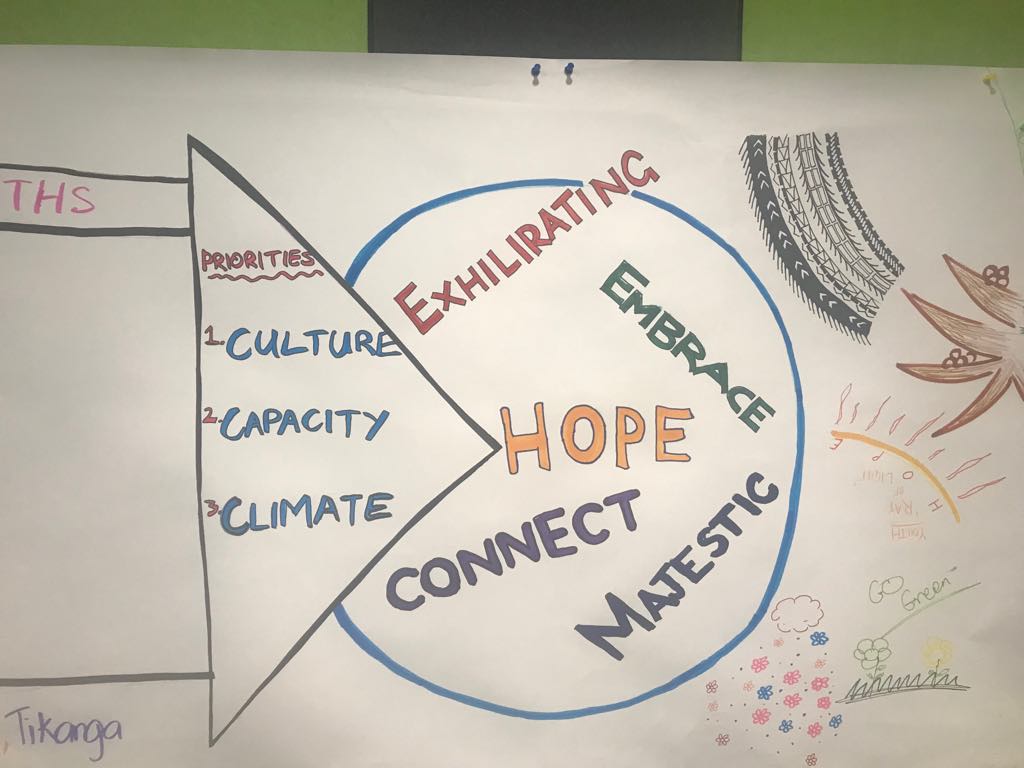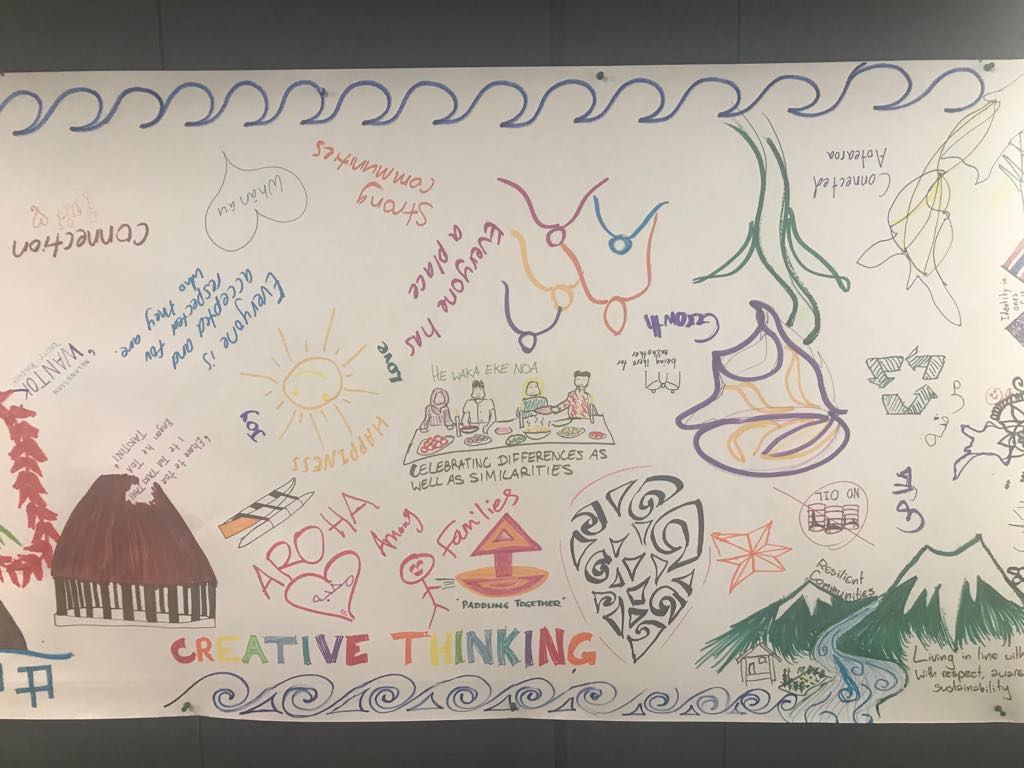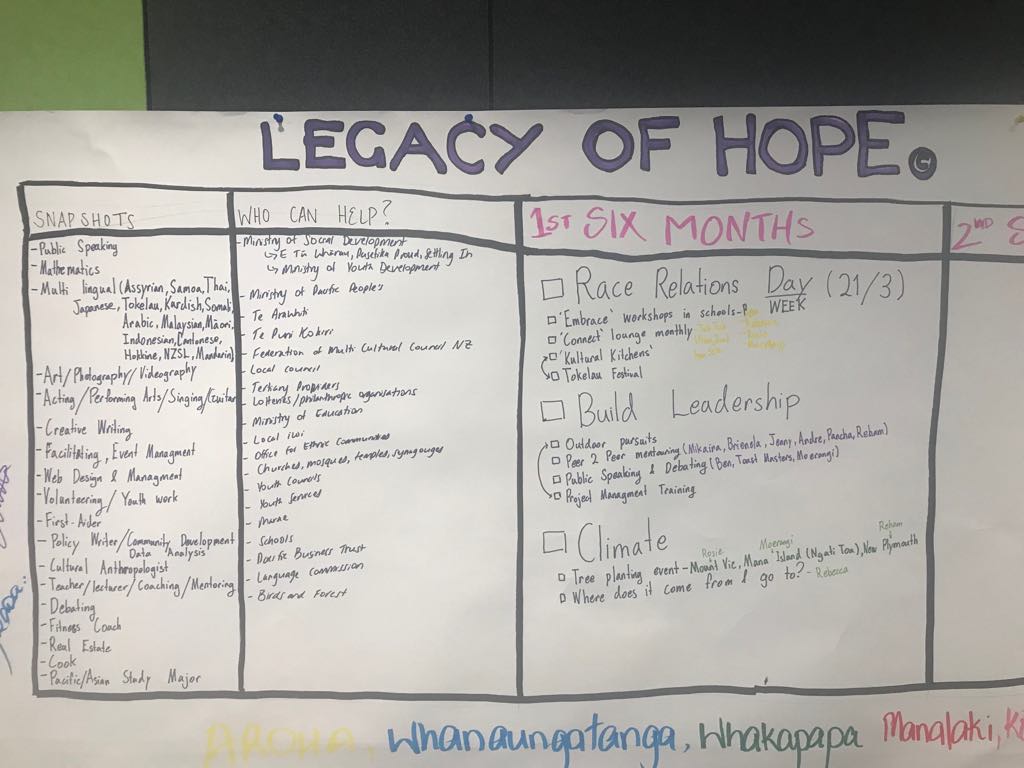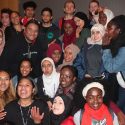‘Hope’ is at the centre of a visual action plan created as a banner by nine committed advocates of the PALMS (Peaceful Action Leadership Movement) kaupapa.
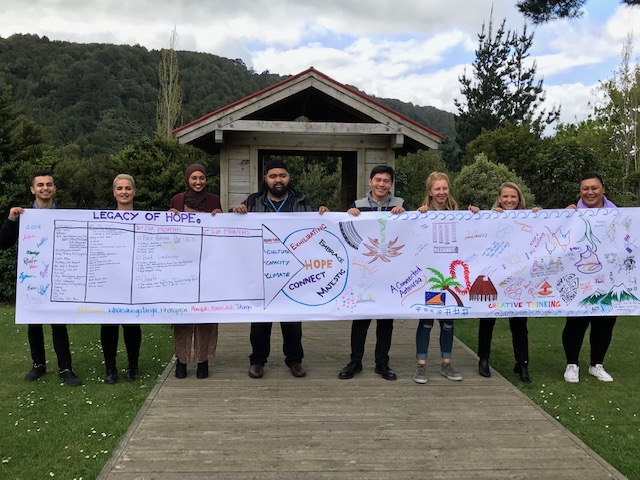
L to R: Ledan Eshay (Assyrian), Riham Abuharbid (Palestinian), Mardiya Mohamed Abdulaziz (Somalian), Natham Lopa (Tokelau/Samoan), Benjamin Cotton Neuang-Kio (Thai/NZ), Rebecca Leete (Irish/NZ), Rosie Anderson (NZ), Jenny Taotua(Samoan)
Five months after attending the 2019 PALMS hui in Rotorua, these young people from diverse ethnic backgrounds came together to plan what they’ll do, individually and as a group, to take the kaupapa forward over the next six months.
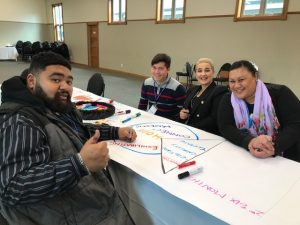 Most come from the great Wellington region. One Palestinian wahine comes from New Plymouth. Together they analysed the findings from the Rotorua hui and highlighted the three ’C’s. These are Culture, Climate change and Capacity, or the need to upskill rangatahi in a wide range of fields, preferably with qualified and experienced mentors.
Most come from the great Wellington region. One Palestinian wahine comes from New Plymouth. Together they analysed the findings from the Rotorua hui and highlighted the three ’C’s. These are Culture, Climate change and Capacity, or the need to upskill rangatahi in a wide range of fields, preferably with qualified and experienced mentors.
The rangatahi identified their own skills, those they need to acquire in order to take action and individuals and organisations to help them make active, positive change in their communities.
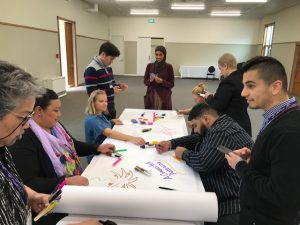 The next step was identifying a series of practical, achievable actions that they could make happen in the next six months. These included setting up race relations workshops in their schools, peer to peer mentoring networks and sourcing project management and public speaking expertise. Their response to the challenge of climate change was to work with local whānau to plant trees. (If you’re interested in the ideas these rangatahi came up with, check out the photographs below of their banner/action plan.)
The next step was identifying a series of practical, achievable actions that they could make happen in the next six months. These included setting up race relations workshops in their schools, peer to peer mentoring networks and sourcing project management and public speaking expertise. Their response to the challenge of climate change was to work with local whānau to plant trees. (If you’re interested in the ideas these rangatahi came up with, check out the photographs below of their banner/action plan.)
PALMS is a movement that grew out of the E Tū Whānau kaupapa and relates strongly to its values. E Tū Whānau continues to support PALMS rangatahi but only to help them forge their own direction and develop their own ideas.
“Many of these young people come from cultures that have traditionally discouraged young people from speaking up,” says E Tū Whānau kaiwhakahaere, Ann Dysart.
“They are proud of their cultures and remain respectful of their elders, but they are also smart, courageous young New Zealanders who share the concerns of their generation and want to be part of the solutions.”
